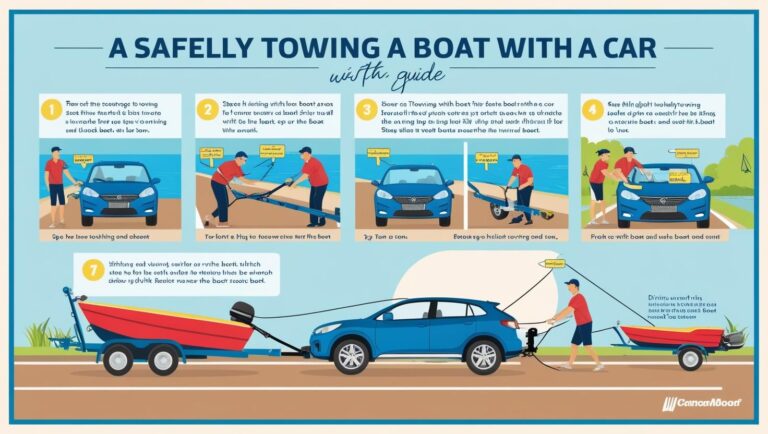Towing a boat with your car can be an exciting yet challenging endeavor, perfect for weekend getaways or summer vacations. However, it requires careful planning and execution to ensure safety on the road. With the right knowledge and precautions, you can confidently transport your boat to any location. This guide provides crucial insights into securely towing your boat and highlights common pitfalls to avoid when hitching your boat to your vehicle.
Essential Tips for Towing Your Boat Securely
Towing a boat requires more than just hitching it up and hitting the road. First, ensure that your vehicle is capable of handling the weight of your boat. Check the owner’s manual for the towing capacity, which includes the combined weight of the boat, trailer, and any additional gear. Overloading your vehicle can lead to dangerous situations, including brake failure or loss of control. Investing in a towing package can provide additional support like stronger suspension, higher-capacity radiators, and often even upgraded brakes.
Next, focus on distributing the weight properly on your trailer. The rule of thumb is to have about 60% of the total weight positioned toward the front of the trailer. Improper weight distribution can lead to swaying, which is a common cause of towing accidents. Ensuring that the trailer is level when attached to the car prevents additional stress on the hitch and improves handling performance.
Finally, inspect all towing equipment before each trip. Ensure that the hitch, tow bar, and safety chains are in good condition and properly secured. Double-check that the boat is tied down firmly using high-quality ratchet straps, and ensure that all lights on your trailer are functioning correctly. This not only keeps you compliant with road safety regulations but also enhances visibility and communication with other drivers.
Avoid Common Mistakes When Hitching Your Boat
One of the most common mistakes is failing to do a pre-trip inspection. Skipping this crucial step can lead to significant issues down the road, such as a loose hitch or worn-out tire. Always allocate time to check the tire pressure, brakes, and lights both on the car and the trailer. Ignoring these can lead to accidents or costly roadside repairs, turning a pleasant outing into an ordeal.
Another frequent error is using the wrong type of hitch or failing to secure the hitch correctly. Ensure that you are using the right size ball and coupler for your trailer. An ill-fitting hitch can disconnect on the road, causing potential harm to you and other road users. Once connected, double-check that the latch is locked and secure. For added safety, cross the safety chains under the tongue to prevent the trailer from dropping to the ground if it becomes unhitched.
Lastly, do not underestimate the importance of practicing towing maneuvers. Before embarking on a long journey, take time to practice driving with the trailer attached. Familiarize yourself with how your vehicle handles turns, stops, and accelerates with the extra load. Pay particular attention to how the trailer tracks behind your vehicle, especially when backing up. Practicing in a safe, open area will build your confidence and skill, reducing the likelihood of mistakes on the road.
Towing your boat can open a world of adventure and exploration, but it’s crucial to prioritize safety and preparation. By understanding your vehicle’s capabilities, ensuring proper weight distribution, and conducting thorough pre-trip inspections, you can minimize risks and enjoy a smooth journey. Avoiding common mistakes when hitching your boat, such as incorrect equipment and inadequate preparation, ensures you are well-equipped for any challenge. With these guidelines in mind, you’ll be ready to hit the open road with confidence and peace of mind, knowing your boat is securely in tow.


















